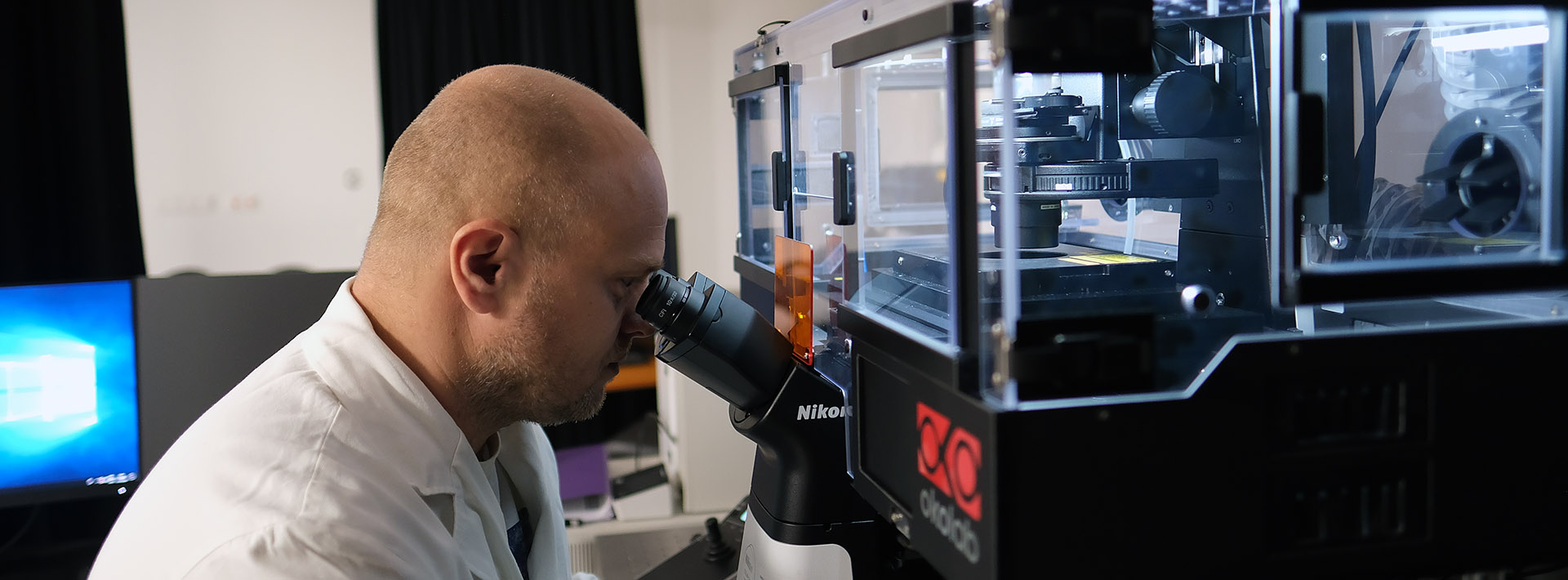Data
Official data in SubjectManager for the following academic year: 2024-2025
Course director
-
Péczely László Zoltán
associate professor,
Institute of Physiology -
Number of hours/semester
lectures: 12 hours
practices: 0 hours
seminars: 0 hours
total of: 12 hours
Subject data
- Code of subject: OAF-CY2-T
- 1 kredit
- General Medicine
- Optional modul
- spring
-
Course headcount limitations
min. 5 – max. 30
Available as Campus course for . Campus-karok: GYTK TTK
Topic
Cybernetics embracing more disciplines deals with the control, regulation, information flow and processing occurring in expediently working dynamical systems. The most important goal of our subject is to help the students understand the functional principles of the regulatory systems, mainly those of the human body. Furthermore, we would like to familiarize the students with how the balance of the regulatory systems can be maintained by their wide adaptive and learning capacity/capability. We would like to demonstrate that etiology of many diseases can be explained by the disruption of balance, how the balance can be restored by the therapy and, at the same time, how the therapy can cause the shift of the balance in other parts of the system (side effect). In addition to the biological systems, both the functional description of the artificial regulatory systems and the artificial intelligence will be addressed. In the second semester the following topics are discussed: neuroendocrin regulation (II), nervous system and immune system as networks, integrative regulation of motion, movement disorders, learning in artificial and biological systems, models of psychiatric diseases, regulatory disturbances.
Lectures
- 1. Networks: communication among cells, organs, organ systems; principles. Nested hierarchical systems. - Péczely László Zoltán
- 2. Networks: nervous system (neuroendocrine system) and immune system, interactions, regulatory disturbances. - Péczely László Zoltán
- 3. Detection in living organisms and artificial systems. - Péczely László Zoltán
- 4. System-level description of the integrative regulation of motion, models, regulatory disturbances and their restitution. - Péczely László Zoltán
- 5. Behaviour and motivation: high-level organization to maintain the integrity of the organism. - Péczely László Zoltán
- 6. Mathematical models of adaptation, learning I: supervised and non-supervised learning in artificial systems. - Péczely László Zoltán
- 7. Mathematical models of adaptation, learning II: supervised and non-supervised learning in biological systems. - Péczely László Zoltán
- 8. Mathematical models of adaptation, learning III: reinforcement learning in artificial systems. - Péczely László Zoltán
- 9. Mathematical models of adaptation, learning IV: reinforcement learning in biological systems. - Péczely László Zoltán
- 10. Modeling of psychiatric diseases, regulatory disturbances, options for interventions I - Péczely László Zoltán
- 11. Modeling of psychiatric diseases, regulatory disturbances, options for interventions II - Péczely László Zoltán
- 12. Adaptation on the level of evolution: learning of species. - Péczely László Zoltán
Practices
Seminars
Reading material
Obligatory literature
-
Literature developed by the Department
-
Notes
-
Recommended literature
Guyton & Hall: Textbook of Medical Physiology
V. V. Purin, R. M. Buyevskiy: Introduction to Medical Cybernetics
Peter Norvig, Stuart J. Russell: MI modern megközelítésben
James Kneer, James Sneyd: Mathematical Physiology I.: Cellular Physiology
James Kneer, James Sneyd: Mathematical Physiology II.: System Physiology
Conditions for acceptance of the semester
Writing a short essay by the end of the semester.
Mid-term exams
Writing of case study, online test.
Making up for missed classes
Not necessary, but it is possible in another language
Exam topics/questions
The topics of the lectures
